14 start with W start with W
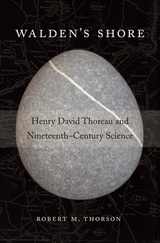
"Let us settle ourselves, and work and wedge our feet downward," Thoreau invites his readers in Walden, "till we come to a hard bottom and rocks in place, which we can call reality." Walden's Shore explores Thoreau's understanding of that hard reality, not as metaphor but as physical science. Robert M. Thorson is interested in Thoreau the rock and mineral collector, interpreter of landscapes, and field scientist whose compass and measuring stick were as important to him as his plant press. At Walden's climax, Thoreau asks us to imagine a "living earth" upon which all animal and plant life is parasitic. This book examines Thoreau's understanding of the geodynamics of that living earth, and how his understanding informed the writing of Walden.
The story unfolds against the ferment of natural science in the nineteenth century, as Natural Theology gave way to modern secular science. That era saw one of the great blunders in the history of American science--the rejection of glacial theory. Thorson demonstrates just how close Thoreau came to discovering a "theory of everything" that could have explained most of the landscape he saw from the doorway of his cabin at Walden. At pivotal moments in his career, Thoreau encountered the work of the geologist Charles Lyell and that of his protégé Charles Darwin. Thorson concludes that the inevitable path of Thoreau's thought was descendental, not transcendental, as he worked his way downward through the complexity of life to its inorganic origin, the living rock.
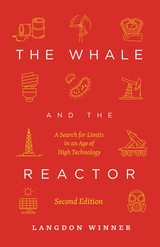
First published to great acclaim in 1988, Langdon Winner’s groundbreaking exploration of the political, social, and philosophical implications of technology is timelier than ever. He demonstrates that choices about the kinds of technical systems we build and use are actually choices about who we want to be and what kind of world we want to create—technical decisions are political decisions, and they involve profound choices about power, liberty, order, and justice. A seminal text in the history and philosophy of science, this new edition includes a new chapter, preface, and postscript by the author.
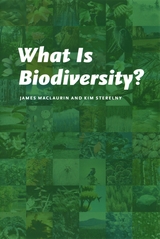
Here, Maclaurin and Sterelny explore not only the origins of the concept of biodiversity, but also how that concept has been shaped by ecology and more recently by conservation biology. They explain the different types of biodiversity important in evolutionary theory, developmental biology, ecology, morphology and taxonomy and conclude that biological heritage is rich in not just one biodiversity but many. Maclaurin and Sterelny also explore the case for the conservation of these biodiversities using option value theory, a tool borrowed from economics.
An erudite, provocative, timely, and creative attempt to answer a fundamental question, What Is Biodiversity? will become a foundational text in the life sciences and studies thereof.
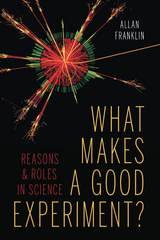
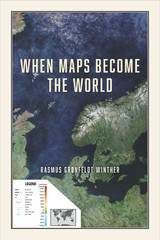
This book is about the promises and perils of map thinking. Maps are purpose-driven abstractions, discarding detail to highlight only particular features of a territory. By preserving certain features at the expense of others, they can be used to reinforce a privileged position.
When Maps Become the World shows us how the scientific theories, models, and concepts we use to intervene in the world function as maps, and explores the consequences of this, both good and bad. We increasingly understand the world around us in terms of models, to the extent that we often take the models for reality. Winther explains how in time, our historical representations in science, in cartography, and in our stories about ourselves replace individual memories and become dominant social narratives—they become reality, and they can remake the world.
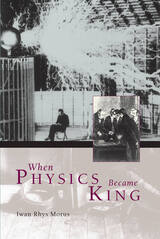
When Physics Became King traces the emergence of this revolutionary science, demonstrating how a discipline that barely existed in 1800 came to be regarded a century later as the ultimate key to unlocking nature's secrets. A cultural history designed to provide a big-picture view, the book ably ties advances in the field to the efforts of physicists who worked to win social acceptance for their research.
Beginning his tale with the rise of physics from natural philosophy, Iwan Morus chronicles the emergence of mathematical physics in France and its later export to England and Germany. He then elucidates the links between physics and industrialism, the technology of statistical mechanics, and the establishment of astronomical laboratories and precision measurement tools. His tale ends on the eve of the First World War, when physics had firmly established itself in both science and society.
Scholars of both history and physics will enjoy this fascinating and studied look at the emergence of a major scientific discipline.

A crystal-clear, scientifically rigorous argument for the existence of free will, challenging what many scientists and scientifically minded philosophers believe.
Philosophers have argued about the nature and the very existence of free will for centuries. Today, many scientists and scientifically minded commentators are skeptical that it exists, especially when it is understood to require the ability to choose between alternative possibilities. If the laws of physics govern everything that happens, they argue, then how can our choices be free? Believers in free will must be misled by habit, sentiment, or religious doctrine. Why Free Will Is Real defies scientific orthodoxy and presents a bold new defense of free will in the same naturalistic terms that are usually deployed against it.
Unlike those who defend free will by giving up the idea that it requires alternative possibilities to choose from, Christian List retains this idea as central, resisting the tendency to defend free will by watering it down. He concedes that free will and its prerequisites—intentional agency, alternative possibilities, and causal control over our actions—cannot be found among the fundamental physical features of the natural world. But, he argues, that’s not where we should be looking. Free will is a “higher-level” phenomenon found at the level of psychology. It is like other phenomena that emerge from physical processes but are autonomous from them and not best understood in fundamental physical terms—like an ecosystem or the economy. When we discover it in its proper context, acknowledging that free will is real is not just scientifically respectable; it is indispensable for explaining our world.
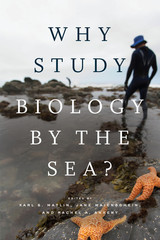
From the Stazione Zoologica in Naples to the Marine Biological Laboratory in Woods Hole, the Amoy Station in China, or the Misaki Station in Japan, students and researchers at seaside research stations have long visited the ocean to investigate life at all stages of development and to convene discussions of biological discoveries. Exploring the history and current reasons for study by the sea, this book examines key people, institutions, research projects, organisms selected for study, and competing theories and interpretations of discoveries, and it considers different ways of understanding research, such as through research repertoires. A celebration of coastal marine research, Why Study Biology by the Sea? reveals why scientists have moved from the beach to the lab bench and back.
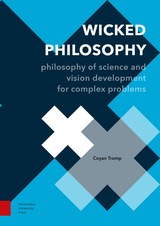
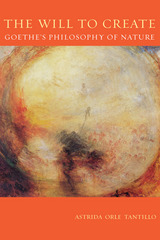
Better known as a poet and dramatist, Johann Wolfgang von Goethe (1749–1832) was also a learned philosopher and natural scientist. Astrida Orle Tantillo offers the first comprehensive analysis of his natural philosophy, which she contends is rooted in creativity.
Tantillo analyzes Goethe’s main scientific texts, including his work on physics, botany, comparative anatomy, and metereology. She critically examines his attempts to challenge the basic tenets of Newtonian and Cartesian science and to found a new natural philosophy. In individual chapters devoted to different key principles, she reveals how this natural philosophy—which questions rationalism, the quantitative approach to scientific inquiry, strict gender categories, and the possibility of scientific objectivity—illuminates Goethe’s standing as both a precursor and critic of modernity.
Tantillo does not presuppose prior knowledge of Goethe or science, and carefully avoids an overreliance on specialized jargon. This makes The Will to Create accessible to a wide audience, including philosophers, historians of science, and literary theorists, as well as general readers.
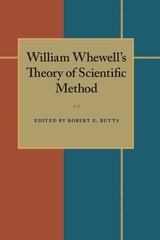
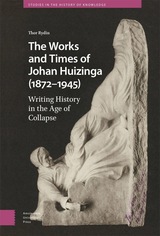

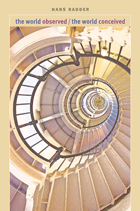
Observation and conceptual interpretation constitute the two major ways through which human beings engage the world. The World Observed/The World Conceived presents an innovative analysis of the nature and role of observation and conceptualization. While these two actions are often treated as separate, Hans Radder shows that they are inherently interconnected-that materially realized observational processes are always conceptually interpreted and that the meaning of concepts depends on the way they structure observational processes and abstract from them. He examines the role of human action and conceptualization in realizing observational processes and develops a detailed theory of the relationship between observation, abstraction, and the meaning of concepts.
The World Observed/The World Conceived will prove useful to many areas of scholarly study including ontology, epistemology, philosophy of language, philosophy of science, science studies, and cognitive science.READERS
Browse our collection.
PUBLISHERS
See BiblioVault's publisher services.
STUDENT SERVICES
Files for college accessibility offices.
UChicago Accessibility Resources
home | accessibility | search | about | contact us
BiblioVault ® 2001 - 2024
The University of Chicago Press









